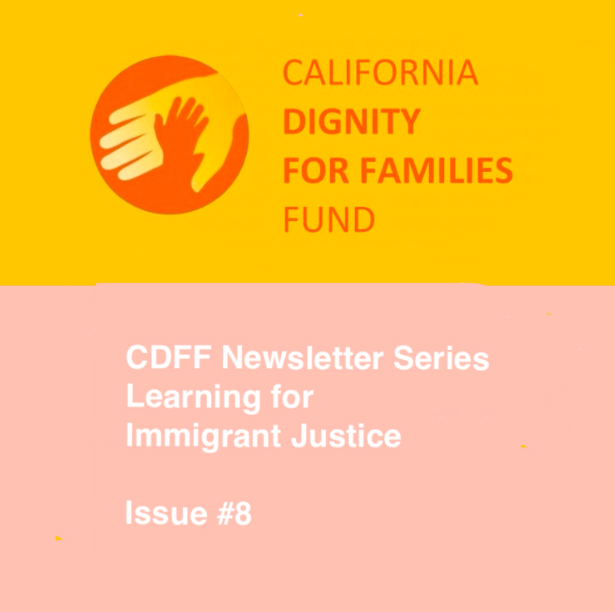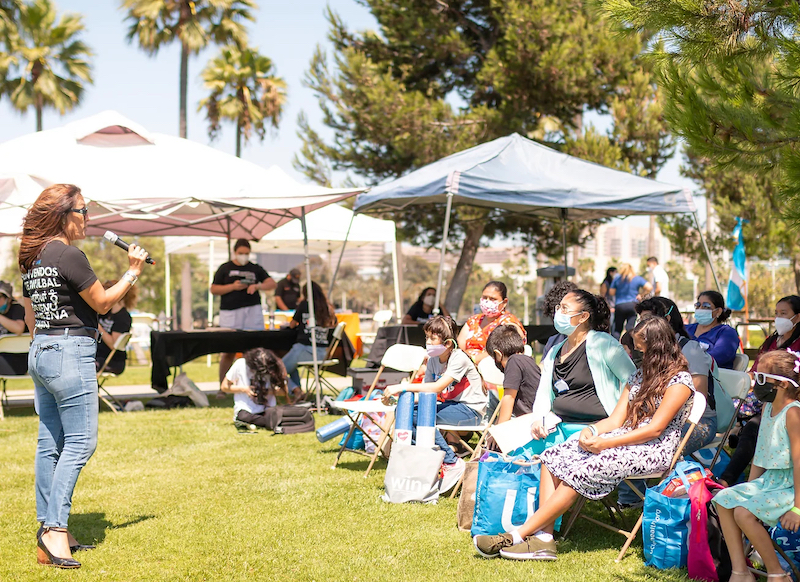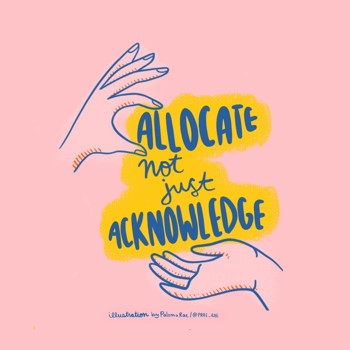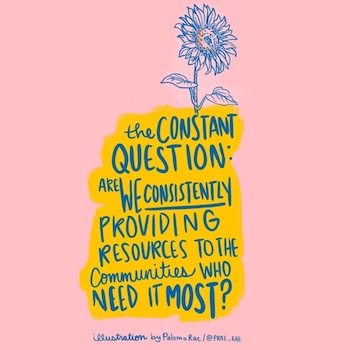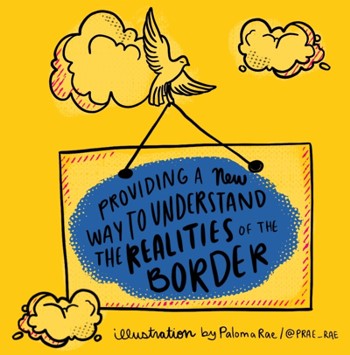This limited mailing of 8 bi-monthly newsletters will highlight the work and insights of non-profit organizations that were funded by the California Dignity for Families Fund (CDFF), a co
llective action fund that supports the urgent humanitarian needs of migrants at the U.S.-
Mexico border and those newly arriving from Afghanistan and Haiti.
This series of newsletters will cover topics such as:
- A holistic approach to services that combines legal and humanitarian support
- In issue #3 of the CDFF newsletter,The dire need for access to in-language, culturally appropriate services
- The mental health challenges of both immigrants and those working to support them
- How best to meet the needs of unaccompanied migrant youth
We look forward to sharing more about the Dignity Fund’s work and learnings over the next few months!
issue 8
The final issue of the California Dignity for Families Fund (CDFF) Newsletter Series: Learning for Immigrant Justice is now out! Learn more about our key findings over the last year:
- Principles of the fund
- The value of investing in rural communities
- Holistic case management
- Seeding the growth of BIPOC leadership
- Language access
- Legal services for migrants
- Unaccompanied youth migrants and mental health
An extra big thank you goes to the CDFF nonprofit partners who took the time to share their thoughts and insights on the topics we covered.
Access our archive of back issues and the final issue here.
issue 7
Over the past ten years, the United States has apprehended and released more than 480,000 unaccompanied immigrant and refugee children to sponsors – all of whom made the risky journey to cross the border into the U.S. without their parents. Many, if not all, were fleeing dangerous situations in their home countries.
In the latest issue of the CDFF Newsletter Series, we speak with Kids in Need of Defense (KIND) and Legal Services for Children (LSC) to find out more about unaccompanied youth crossing the border, the needs of migrant children, the impact of trauma, and mental health.
Read issue #7 here and sign up to receive future issues here.
issue 6
In this issue, we spotlight the importance of providing legal services and support to migrants. Learn more about how organizations like Central Valley Immigrant Integration Collaborative, Al Otro Lado, MICOP, and Immigrant Defenders Law Center are providing crucial legal services to their clients, and how you can support their efforts.
Read issue #6 here and sign up to receive future issues here.
Our thanks to Immigrant Defenders Law Center for use of this photo.
issue 5
With over 40 langauges spoken by incoming migrants at the border, having a diverse network of interpreters is critical. In issue #5 of the CDFF newsletter, we examine the importance of language access and how groups like Comunidades Indígenas en Liderazgo (CIELO) and Partnership for the Advancement of New Americans (PANA) are working to meet these language needs.
Read issue #5 here and sign up to receive future issues here.
issue 4
In issue #4 of the CDFF newsletter, we explore the racial disparities in nonprofit leadership and grantmaking priorities, and find out how philanthropy can make a change by re-prioritizing funding and support to seed the growth of BIPOC-led nonprofits.
Read issue #4 here and sign up to receive future issues here.
issue 3
In issue #3 of the CDFF newsletter, we explore the concept of holistic case management and how it can be a powerful tool for meeting the legal and humanitarian needs of migrants.
We hear from nonprofit organization Al Otro Lado about how they utilize holistic case management to support their clients on a long term basis. Read issue #3 here and sign up to receive future issues here.
ISSUE 2
As we sit down for holiday meals this season, we don’t often think about where our food comes from and who grows it. It’s easy to forget about the farmworkers – many of whom are immigrants – facing dangerous and often exploitative working conditions while performing the most essential work.
In issue #2 of the CDFF Newsletter: Learning for Immigrant Justice, we learn more about nonprofit organizations serving immigrant communities in rural California. We also interview Ivy Suriyopas, Vice President of Programs at GCIR, and find out why investing in rural communities is crucial. Read issue #2 here and sign up to receive future issues here.
Issue 1
The recent political stunts of relocating migrants to Martha’s Vineyard, Washington D.C., and New York City distract us from the urgent needs of the 2.4 million people who arrived and were apprehended at the U.S.-Mexico border this year. We invite you to look past the media sensationalism of these stories and learn with us as we focus on the rights, wellbeing, and dignity of migrants and share insights from the work being done at the border to support them. Read issue #1 here and sign up to receive future issues here.
What Makes This Fund Unique?
CDFF is guided by a set of principles intended to influence how philanthropy engages with migrant communities and to inform how it redistributes resources. These principles are grounded in trusting relationships among diverse stakeholders and in centering the expertise of movement leaders.
Valuing the knowledge and listening to the experiences of immigrant justice movement leaders allows us to gain a deeper understanding of the needs of migrants at the border and the needs of the non-profits doing the work to serve and advocate for them. By doing so, we can build an effective and sustainable support infrastructure that will address and engage the challenges facing migrants as they arrive to the U.S.
Read more about the fund’s principles, priorities, and advisory committee.
